Current Event
History
Observations
Reading
Entertainment
Science
COVID-19 Pandemic
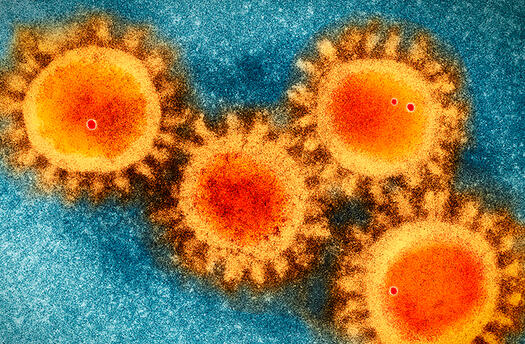
We are living in a major historical event. A disease spread throughout the world in 2020 and continues to cause distress among all countries. Several vaccines have been made and distributed, yet case numbers continue to rise. Nobody seems to know what's going on, and reliable data seems scarce and every source says something new and different. I feel that the virus is just a natural occurrence that we happen to be living through. It'll kill some, and others will live. That's now nature works, and I belive that this is just nature happening. I don't fear the virus very much; if I catch it, I catch it. If I die, I die. Nature is cruel and unfair. Some people believe that the virus is one of the four horsemen of the biblical apocalypse and are either afraid or accepting of the fate of the world that they believe is coming soon. Some believe the virus and even the vaccine are a form of population control. They believe the virus was man-made with the intent on killing the elderly to lower the population of the planet. Others believe the virus is biological warfare made by China to initiate war with America.
The Plague of Athens
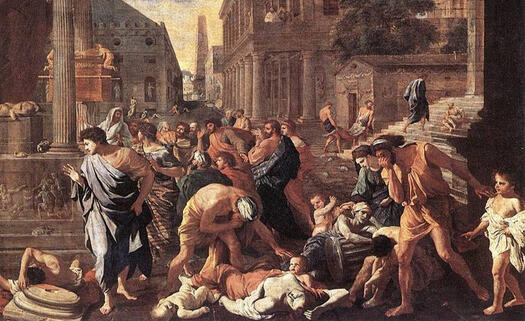
The plague of Athens began during 430 BC and ended around 426 BC. It started during the second year of the Peloponnesian war, eventually causing Athens to lose that war, which they were originally on the path of winning. Not only did Athenians lose a war, but they also lost their societal rest. Athenians began acting recklessly, losing respect for their gods, in which they had so much faith in, and in their own people. The symptoms—coughing, fever, inflammation of the eyes, vomiting, dehydration, pustules, insomnia, and several more—were so horrific and the disease was spreading so rapidly that Athenians believed that there was no point in acting moral or just. They spent money without thought and refused to be generally good because they felt it was now meaningless. The cause of the disease is still unknown to this day. Several guesses at the disease have been made, including ebola, typhoid, and the bubonic plague, but there is no real way of knowing anymore.
I chose to write about the plague of Athens because I have an interest in disease and its effects on history. This could tie into the topic of the fragility of society and how we may need to reevaluate and strengthen ourselves as a society. This could also tie into how little we truly know historically, as we can't even identify some diseases that plagued our own species in the past.
https://pubmed.ncbi.nlm.nih.gov/19787658/
https://www.cbc.ca/radio/ideas/civilization-is-a-very-thin-veneer-what-the-plague-of-athens-can-teach-us-about-dealing-with-covid-19-1.5624000
https://en.wikipedia.org/wiki/Plague_of_Athens
The Discovery of Viruses
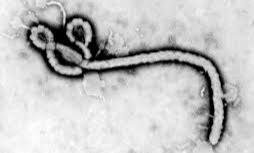
In the late 1800's, Dimitri Ivanovsky discovered viruses. He was researching tobacco plants, and eventually found that they would still spread disease to healthy plants despite being filtered for bacteria, which meant he had discovered something significantly smaller than a bacterium. This discovery was the beginning of a new age of pathology and virology. Six years later, another scientist by the name of Martinus Beijerinck continued Ivanosky's studies and fully discovered and named the virus. Neither of the two scientists truly understood the virus, as Ivanosky believed that the virus was a sort of "micro-bacteria, and Beijerinck originally stated that it was something still infectious that was produced by bacteria.
I chose this topic because I have an interest in the history of pathology. I'd connect this to a big idea such as how little humans actually know about the world around them and how we may need to humble ourselves.
https://sciworthy.com/the-first-virus-discovered/
https://www.ncbi.nlm.nih.gov/pmc/articles/PMC408320/pdf/bactrev00200-0002.pdf
The COVID-19 Vaccine
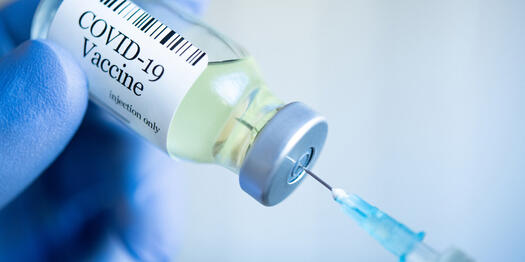
The amount of people that have been fully ready to take a vaccine for COVID-19 has dropped substantially. Americans went from 72% definitely wanting the vaccine in May 2020 to only 21% definitely wanting the vaccine by September 2020. Many people are concerned about the side effects and not knowing enough about the vaccine If the vaccine does work, this could make the recovery from COVID-19 nationally much slower if more people even in one country don't take the vaccine. The majority of everyone regardless of political belief is included in these statistics; everyone is concerned.
I'm not sure what my stance is on it because reliable information about it is scarce, which is another reason this is a trend at all. I think the people that are skeptical about the vaccine have good reason to feel that way, and I think that it's good that people are questioning authority and the vaccine itself.
https://www.pewresearch.org/science/2020/09/17/u-s-public-now-divided-over-whether-to-get-covid-19-vaccine/
E.J. Dionne

E.J Dionne writes mainly opinion pieces relating to politics. He leans toward Democratic supporting opinions and it shows in his writing. He uses negative words when writing about who or what he views as wrong or bad to sway the reader's thoughts on the matter. He often uses examples that pertain to the situation he is writing about to prove his point further. A common device Dionne uses is an appeal to emotion. He mentions the issues faced by the working-class and minorities a lot in his writing to make the reader feel that the Democratic party and our current president are on the right track by helping those two groups and speaking on issues those groups face. I am divided on my opinion on his writing. My political views don't align with his, and I do not agree with many of the points he makes, but I can understand where he is coming from in his articles.
https://www.washingtonpost.com/people/ej-dionne-jr/
The Discovery of Bacteria
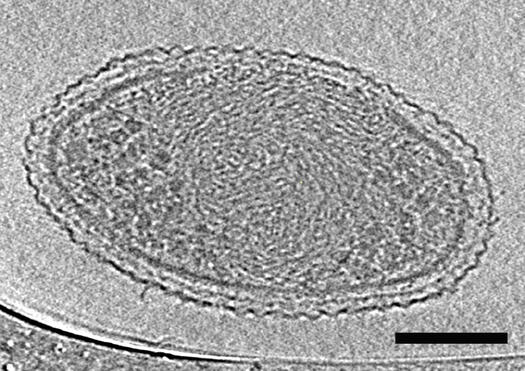
https://www.aaas.org/discovery-bacteria
Creatures too small for the naked eye to see have always been speculated, but in 1676, they were discovered to officially be real, and they were called bacteria. The source of bacteria was debated until the research on sterilization proved exactly where they came from. These discoveries about bacteria changed the way death spread throughout the world. Further research on bacteria led to the prevention of bacterial disease, leading to changes in how death spreads throughout the world. " [In] the year 1900 the prevailing three causes of death were influenza/pneumonia, tuberculosis, and gastroenteritis, whereas in the year 2000 the prevailing causes of death were heart disease, cancer and stroke" (paragraph 7). I think that the way this discovery changed the world for the better gives hope for us as a species advancing and discovering more new things that will once again change the statistics of the way people die and how often they die.
https://explorable.com/discovery-of-bacteria
Antony Van Leeuwenhoek discovered bacteria in 1676 and was also credited with the invention of several microscopes. He originally worked simple jobs such as bookkeeping and business managing. He was introduced to microscopes through magnifying glasses, finding interest in the world magnified. He began studying things under the microscope. "He experimented to calculate the number of microorganisms in water and examined other objects like skin, hair and blood. He also studied physical structure of ivory and discovered parasites in flea using more powerful microscopes" (paragraph 8). Leeuwenhoek's studies were eventually accepted by the Royal Society of London and he was accepted as a scientist in 1680.
https://corporate.evonik.com/en/the-discovery-of-bacteria-138063.html
Antony Van Leeuwenhoek's discovery of bacteria paved the way for several scientific breakthroughs. Back when he first discovered it, miasma theory, the belief that disease lived in and was carried by bad air, was still the dominating explanation for disease. It was much later proven in the mid-1800's that disease could be contained through sterilization. Once this was tested, "[the] mortality rate then fell from up to 30 % to just 1.3 %" (paragraph 3). Disinfection and sterilization became the norm and this lead to a massive decrease in death in the medical field and overall. I'm very glad that we've moved past miasma theory and have advanced so far in pathology.